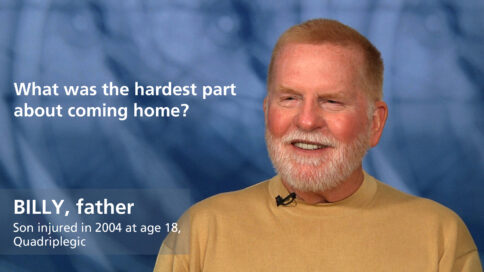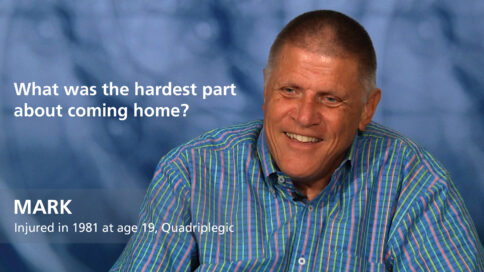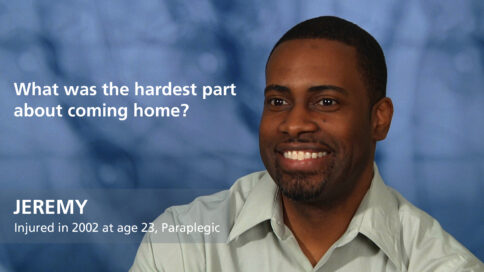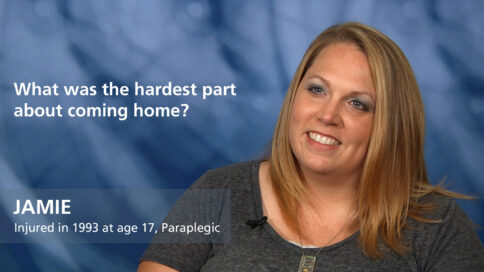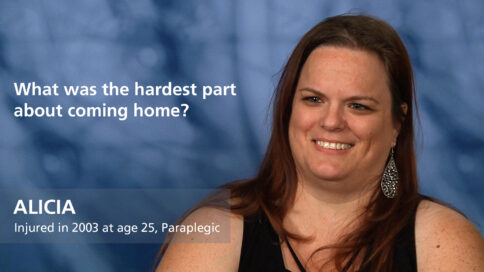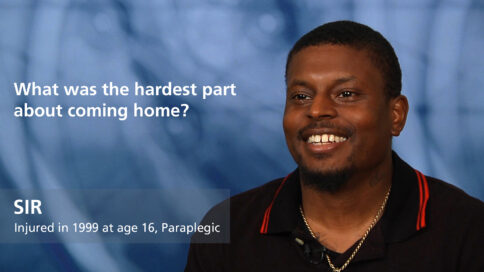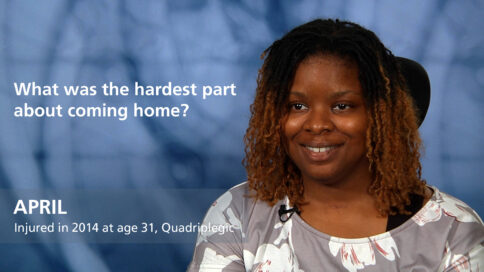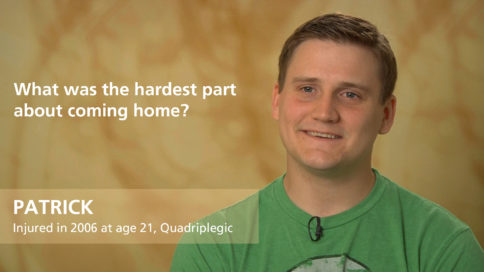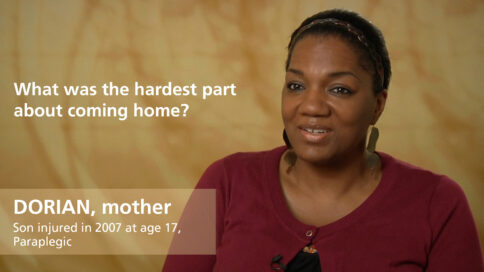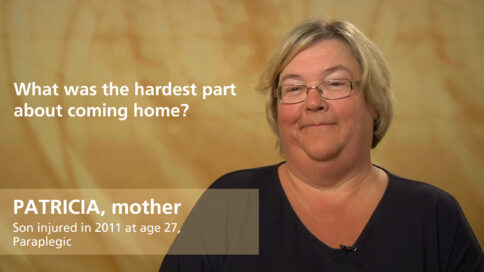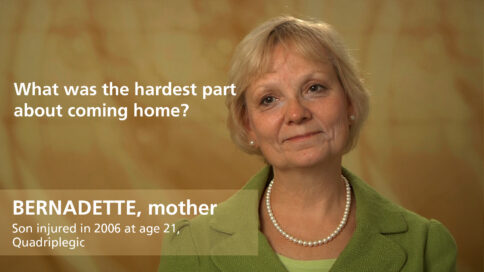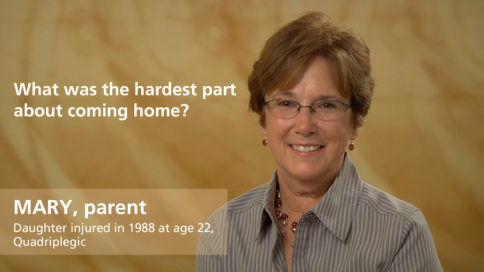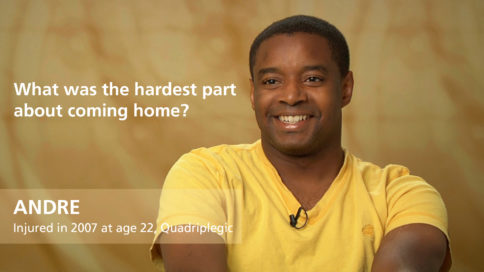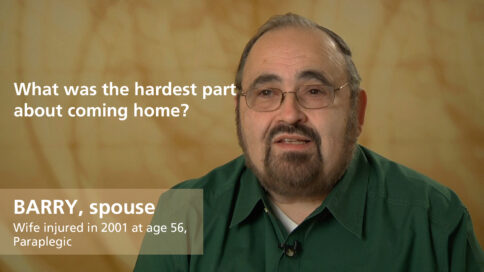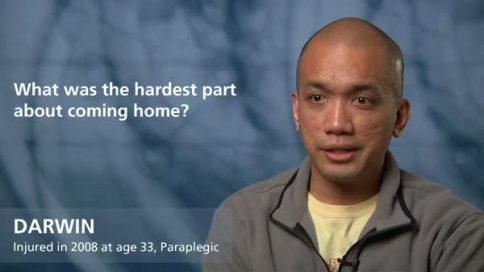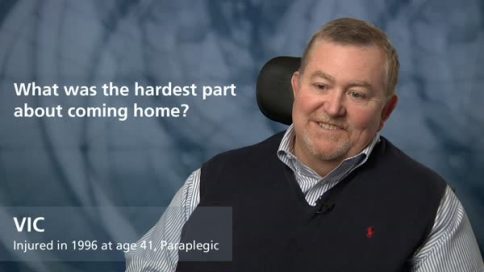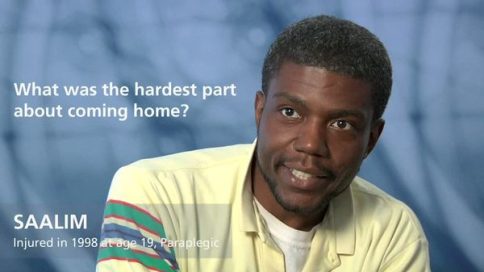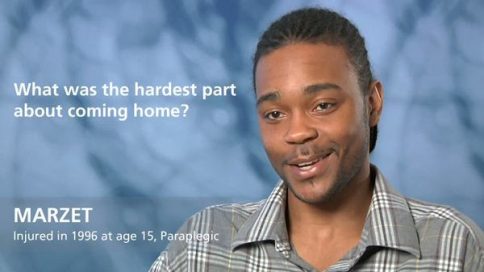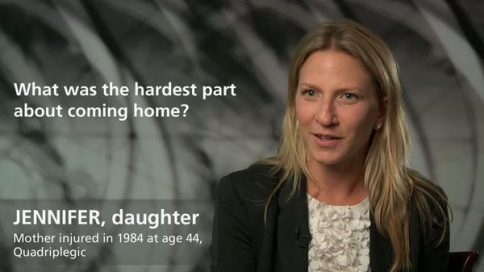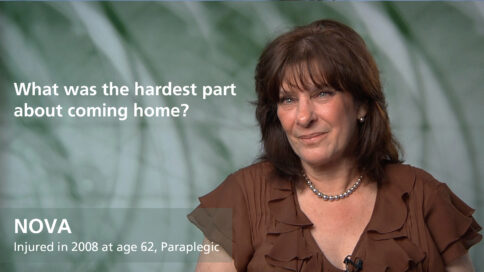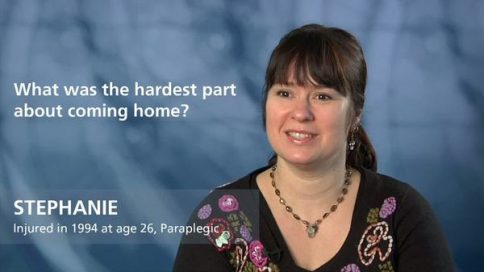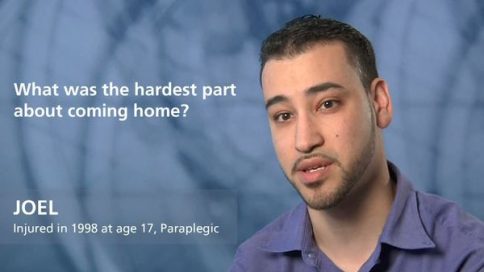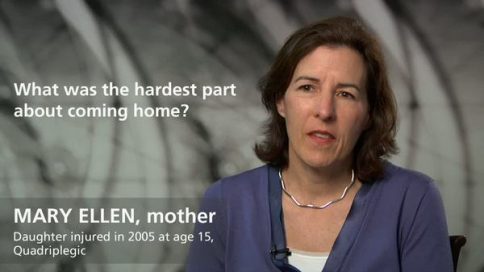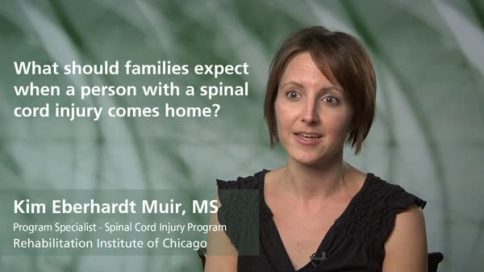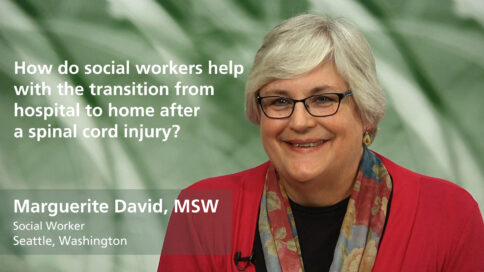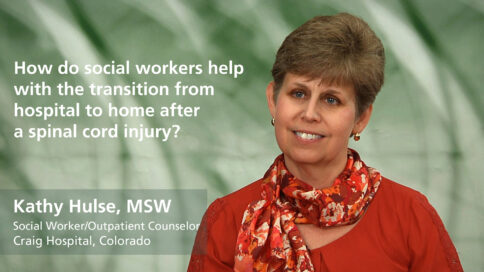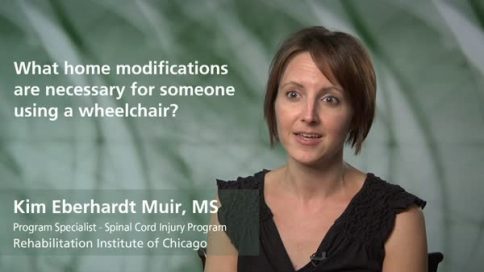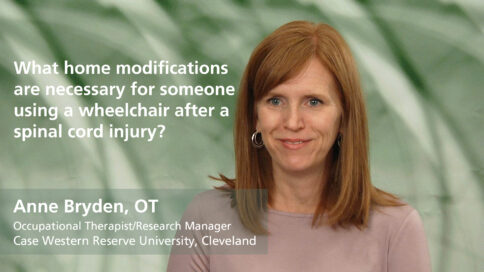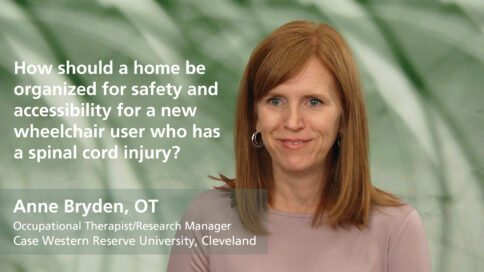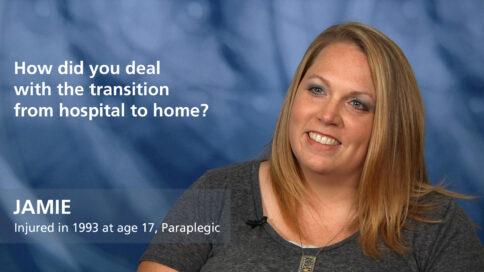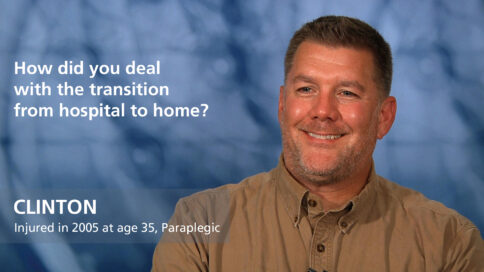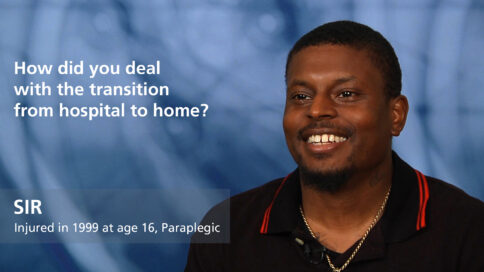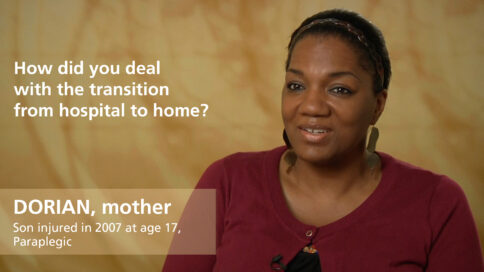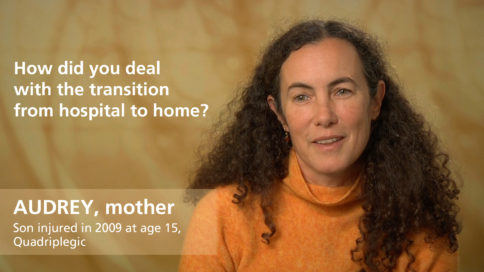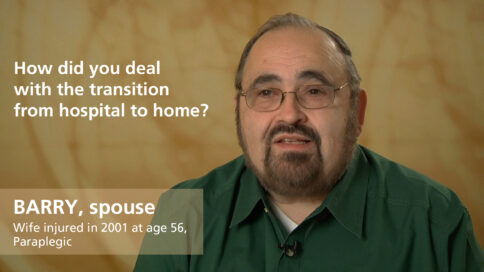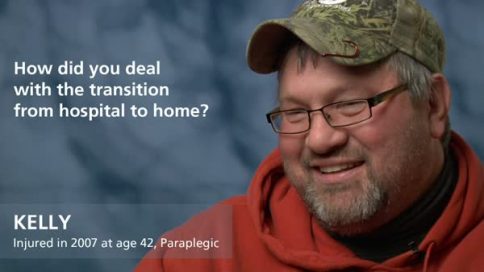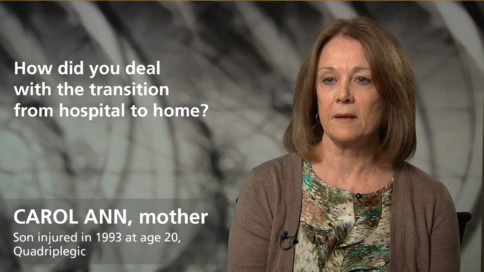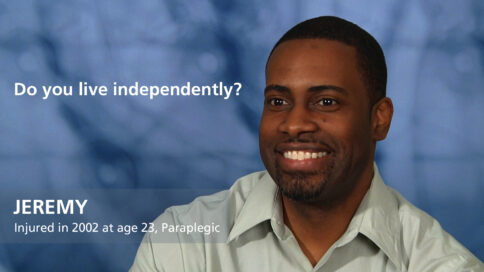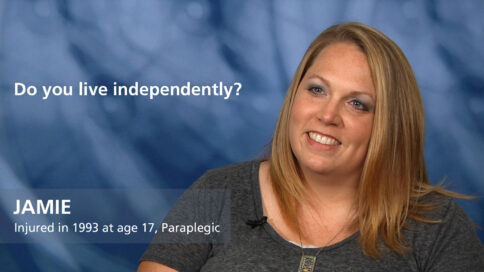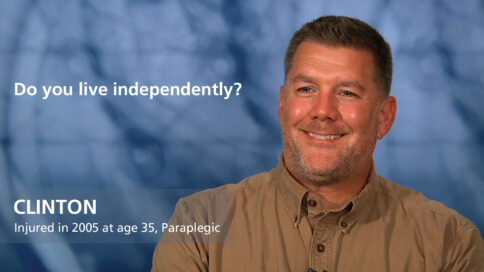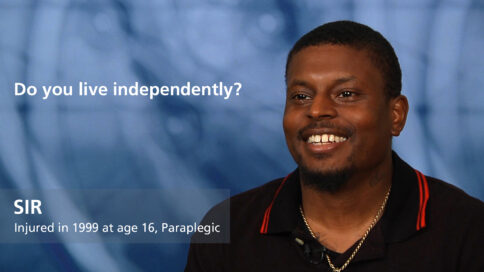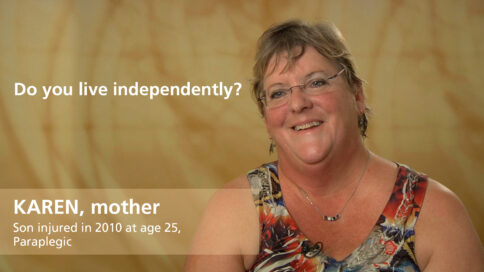Tricia – What was the hardest part about coming home?
|
|
Tricia – What was the hardest part about coming home? |
|
| More Videos by Tricia | ||
|
Share |
||
Transcript
It’s like having a newborn at home again, I mean, it’s scary. You know, I’m worried about rolling him every two hours in the middle of the night. Taking over, you know, I did a lot of the things when he was in rehab, especially near the end, so I knew how to do them, but taking total control of that is scary. One of the big things with people in his situation—he’s a paraplegic—is the dysreflexia, is where they, their body reacts, their body’s trying to send a signal that they have some kind of problem going on, and it’s trying to send the signal, but their blood pressure either drops, or you know, he would get sick, you know, he wasn’t maintaining necessarily his blood pressure, so he had to have a, you know, special wrap around his stomach to help keep the blood pressure higher. That kind of stuff, when you’re in a rehab environment, and you have someone there to support you like a nurse or an aide, who knows what’s going on, and knows that he’s reacting that way is one thing, but then you get home and it’s a completely different thing. One other thing is that a lot times they tell you that the risk of, like, urinary tract infections for a paraplegic person are going to increase when he comes out to the real world. He’s been in like this somewhat sterile environment, and his body used to this, and, you know, sure enough he’s home a month, and he gets an infection and ends up back in the local hospital. The local hospital had no idea how to handle a paraplegic patient, none whatsoever. They didn’t understand the bowel program, they didn’t understand the medicines that he required, it was actually very surprising to me that I had to tell them what we needed to do for him to be able to stay in the hospital for a few days. You know it was, it’s a little scary that, you know, feeling that I know more than these people who are—and not that I knew more than them, but I knew how to take care of him better than they did.
Show Less|
|
||
add
Tricia – What was the hardest part about coming home? |
||
TriciaPartner or spouse injured in 2007 at age 42, paraplegic |
More Videos by Tricia | |
| Transcriptadd | share | |
It’s like having a newborn at home again, I mean, it’s scary. You know, I’m worried about rolling him every two hours in the middle of the night. Taking over, you know, I did a lot of the things when he was in rehab, especially near the end, so I knew how to do them, but taking total control of that is scary. One of the big things with people in his situation—he’s a paraplegic—is the dysreflexia, is where they, their body reacts, their body’s trying to send a signal that they have some kind of problem going on, and it’s trying to send the signal, but their blood pressure either drops, or you know, he would get sick, you know, he wasn’t maintaining necessarily his blood pressure, so he had to have a, you know, special wrap around his stomach to help keep the blood pressure higher. That kind of stuff, when you’re in a rehab environment, and you have someone there to support you like a nurse or an aide, who knows what’s going on, and knows that he’s reacting that way is one thing, but then you get home and it’s a completely different thing. One other thing is that a lot times they tell you that the risk of, like, urinary tract infections for a paraplegic person are going to increase when he comes out to the real world. He’s been in like this somewhat sterile environment, and his body used to this, and, you know, sure enough he’s home a month, and he gets an infection and ends up back in the local hospital. The local hospital had no idea how to handle a paraplegic patient, none whatsoever. They didn’t understand the bowel program, they didn’t understand the medicines that he required, it was actually very surprising to me that I had to tell them what we needed to do for him to be able to stay in the hospital for a few days. You know it was, it’s a little scary that, you know, feeling that I know more than these people who are—and not that I knew more than them, but I knew how to take care of him better than they did.
